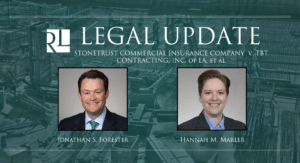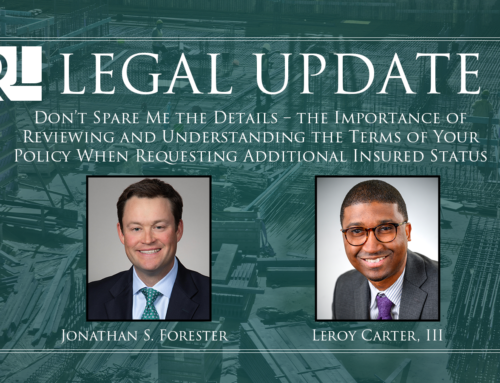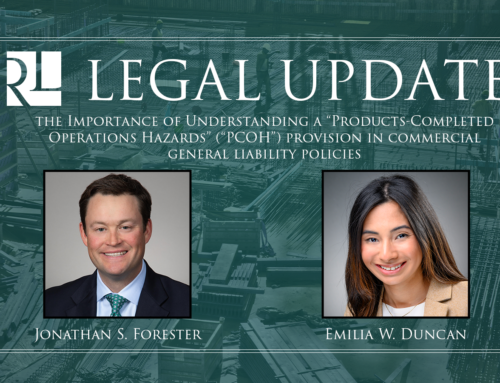 Stonetrust Commercial Insurance Company v. TBT Contracting, Inc. of LA, et al
Stonetrust Commercial Insurance Company v. TBT Contracting, Inc. of LA, et al
Authors: Jonathan S. Forester and Hannah M. Marler
Homeowners cannot be held liable for the injuries of a construction worker when the general contractor, who hired the subcontractor who employed the injured worker, was an independent contractor.
This lawsuit arises from an incident involving an electrician who sustained injuries when he fell through an attic access hole while performing work on a residential renovation project. The parties at issue in the suit include TBT Contracting, Inc. of Louisiana (“TBT”), the general contractor, and Naquin, who worked as the electrical subcontractor of TBT and employer of the injured party. Naquin’s workers’ compensation insurer, Stonetrust Commercial Insurance Company (“Stonetrust”), filed suit seeking reimbursement from both the homeowners and the general contractor for the benefits paid to the injured worker. The homeowners filed a motion for summary judgment seeking dismissal of Stonetrust’s claims against them. The homeowners argued they could not be held vicariously or directly liable for the electrician’s injuries and that the insurer could not establish the homeowner’s liability because the homeowners never controlled the work on the project and had no employer-employee or independent contractor relationship with Naquin. Stonetrust filed an opposition to the motion offering depositions and affidavits as evidence. The trial court granted summary judgment in favor of the homeowners, and Stonetrust appealed, arguing that the trial court erred in finding no genuine issues of material fact and in granting the motion for summary judgment.
The First Circuit held that summary judgment was appropriate because the homeowners successfully established that an employment relationship did not exist between Naquin and the homeowners themselves. Therefore, the homeowner cannot be vicariously liable for the actions of the contractor. The relationship between the homeowner and the general contractor is akin to an independent contractor relationship, and generally, a principal is not liable for the torts of independent contractors performing their contractual duties. Thus, the only way Stonetrust could defeat summary judgment was to establish that the electrician’s injury resulted from an ultrahazardous activity or that the homeowners reserved the right to supervise or control the work of the general contractor. Since the electrician was not performing an ultrahazardous activity, the only question before the court was whether the homeowners held a supervisory role. In answering this question, the First Circuit made an important distinction; in order to limit a homeowner’s liability, their control over the work must be “restricted to the result to be rendered, as opposed to operational control.”
The homeowners established through their affidavits and deposition testimony that they relied on the contractor for scheduling, selecting subcontractors, and ensuring the renovation proceeded in accordance with the plans submitted by the designer. Further, the homeowners attested that they did not supply the tools or materials and only exchanged occasional pleasantries with the subcontractors during occasional site visits. Since the insurer did not present any evidence of the homeowner’s operational control over the project, the homeowner, as the principal, was not liable for the torts of the general contractor, as the independent contractor. Thus, the First Circuit affirmed the trial court’s summary judgment in favor of the homeowner.
The insurer also appealed the trial court’s finding that the homeowners were not directly liable for the electrician’s injuries. The First Circuit upheld the trial court’s decision finding that the insurer did not present any evidence showing that the homeowner had operational control over the general contractor with respect to the creation of the attic access hole and thus the homeowners also could not be held directly liable for the electrician’s injuries.
In this case, the First Circuit upheld the established rule that a principal is not generally liable for the torts of independent contractors. Thus, when an entity—whether contractor, subcontractor, or owner—hires a contractor to perform work and establishes an independent contractor relationship, the entity cannot be held vicariously or directly liable for the torts of that contractor absent reservation of control or supervision or performance of an ultrahazardous activity.



